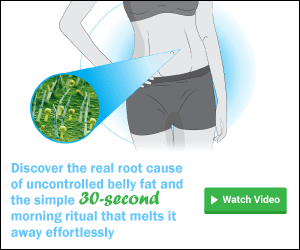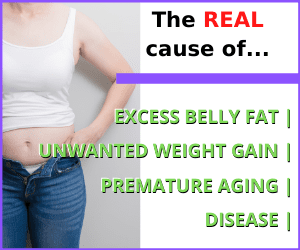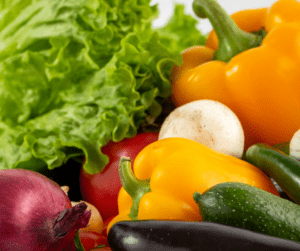===============================================
DOWNLOAD MY FREE EBOOK – 4 HORMONES THAT CAUSE YOUR HORMONE CHAOS –
=====================================================
INTERMITTENT FASTING FOR WOMEN OVER 40
Are you a woman over 40?
have you been yo yo dieting?
Are you finding that what worked for you when you were younger is not working for you now?
Are you eating healthily and exercising but not seeing any results and the belly fat is not budging?
I have been studying intermittent fasting over the last year and have been including this into my life with great results.
In my 20’s and 30’s I suffered from terrible digestion and I had very dry skin. My digestion crashed 4 years ago and I have been on a healing journey ever since and learning about eating for better health and wellbeing.
Today I am leaner, have more energy and have more mental clarity than I did when I was younger. I am now 49.
I wanted to learn more about how intermittent fasting can improve health and help the body to lose the weight that it doesn’t need. This can then begin the process for your body to heal itself.
The body is always on your side and will do everything it can to help you to stay alive, it will never betray you although sometimes you may think so! Every woman is different and that is why following someone elses diet will not work for you. You have to work with your own body and create a way of eating and lifestyle habits to suit your needs. You can then begin to create a healthy life where you are cutting your risk of developing diseases later in life and also being able to have more energy, more mental clarity and feel great inside and out.
I am looking for women who are fed up of following someone elses diet plan and wants to see the benefits of being a healthy woman, is this you?
I have created a Intermittent Fasting Course where I teach you about the benefits of Intermittent Fasting and how it benefits your health and fat loss
WHAT THE COURSE INCLUDES:
A supportive environment with other like minded women
Learn about intermittent fasting and the many anti ageing benefits
Create a nutritional way of eating to suit your needs and lifestyle
Fix hormonal imbalances
Learn how to listen to your body and give it what it needs
WHAT THIS COURSE DOES NOT INCLUDE:
Meal Plans to follow
Weighing or measuring food
Before and after photos
Weighing yourself and tracking calories
You can find out more details about the Course and how to book onto the course by clicking the link below:-
MY WEBSITE –
MY FACEBOOK PAGE –
MY INSTAGRAM PAGE –
I look forward to getting to know you
Andrea x
For women over 40, one of the best ways to maintain a healthy weight is to fast intermittently. Intermittent fasting for women over 40 can be done daily or just two days per week and shouldn't last more than 16 hours at a time. Women who are pregnant or breastfeeding should not do intermittent fasting without consulting their doctor first.
As we age, our metabolism slows down which means it's harder for us to keep weight off by simply eating less food. Eating too little often leads to feeling terrible and overeating later on which is why many experts recommend intermittent fasting as an effective way of maintaining healthy body weight in your senior years.
If you're interested in learning how you can start practicing intermittent fasting today then read on.
 What is intermittent fasting?
What is intermittent fasting?
Intermittent fasting is a pattern of eating. There are many different ways to do intermittent fasting but most experts agree that it should follow a cycle of feasting and starving. In the feast portion, you will eat whatever you want for a certain time period while in your starvation period, you shouldn't eat anything at all for 16 hours or more. The best times to fast are during your sleeping hours when your body does not require food for energy or fuel. It is important to understand that intermittent fasting is not a way of eating but rather a pattern of eating. You can eat whatever you like and as much as you like and it's still considered to be intermittent fasting as long as you don't eat for 16 or more hours out of the day/night cycle.
 Why should I practice fasted exercise?
Why should I practice fasted exercise?
Fasted exercise can help decrease your body fat faster than exercising later in the day (post-prandial state) because insulin levels are lower at this time. When we eat food, the insulin goes up which tells our cells to store any excess energy as glycogen. This helps our muscles contract properly and it also helps us stay well hydrated by moving water from our blood vessels into our cells. Since insulin also tells our kidneys to hold on to sodium, it makes us feel bloated which is often mistaken as being fat. The reality of the situation is that water retention causes us to look bigger than we really are. When you do exercise in your post-prandial state, your blood sugars remain elevated and so do your insulin levels. This signals for your body to store energy as glycogen instead of breaking down fatty acids for fuel. The result of this scenario is that all the glucose that runs through your bloodstream ends up getting stored as fat since it's not used as fuel (energy).
One other benefit of fasted exercise is that by training in a fasted state, you'll no longer be hungry during or after exercising because your body will be using your stored energy reserves instead of the food that you just ate.
What is a good intermittent fasting schedule?
Many health professionals are recommending intermittent fasting anywhere from 2 days per week to 6 days per week depending on how much weight you need to lose. If you are working out less than 60 minutes at a time, then it's recommended that you do not eat any food for about 16 hours before exercising. If you are doing more than an hour of exercise at a time, then it's recommended that you do not eat any food for about 14 hours before exercising. Most people will find that if they wait until after they work out to eat, then their workouts end up being much shorter they aren't as hungry as they would be if they ate before exercising. If you want to make the most of your training and see results as fast as possible, then it's highly recommended to work out on an empty stomach.
Why is there a weight loss plateau?
Most people who are trying to lose weight will end up hitting a plateau where their rate of weight loss stalls even though they're still practicing intermittent fasting and eating right. This happens because the body adjusts to the amount of energy that we expend every day and it also adjusts our hunger levels based on what we usually eat at certain times throughout the day. When this happens, our bodies become very efficient at holding onto fat so that we can survive during periods when food isn't available to us. Once this happens and we keep eating the same amount of food and exercising at the same intensity, we can hold on to some extra weight while our body adjusts.
What is the best way to break a weight loss plateau?
The best way to get over a weight loss plateau is to up your exercise intensity and change your workout schedule. If you're lifting weights 3 days per week for an hour each time, then it's recommended that you add another day of interval cardio training for 30 minutes. It's also important that you try fasting intermittently (not eating anything) before your morning workouts and find creative ways to make sure that you burn more energy than usual (increase your yard work around your home, ride your bike instead of driving, etc.). Eating more before or after your workouts won't make the weight fall off anymore.
If you’ve been struggling with wanting to eat healthily but not being able to make the changes, intermittent fasting could be a great way for you to get started. This article should have given you some tips and tricks on how to start an intermittent fast that will work best for your lifestyle. There are many benefits of this diet plan, including weight loss, increased energy levels, reduced risk of illness or disease, improved immune system function-the list goes on! The important thing is that it can help improve your relationship with food in general by giving yourself more control over what foods you consume during certain times throughout the day. We hope our advice has helped give you insight into how this type of eating plan might benefit your physical health.



 What is intermittent fasting?
What is intermittent fasting? Why should I practice fasted exercise?
Why should I practice fasted exercise?
where is the intermittent fasting part ?
Hi Teri, thanks for pointing this out to me. My video was not an instructional video on how to do intermittent fasting, I wanted to focus on the benefits of it and creating a better relationship with food.
Is that a northern accent i hear. Good post i have struggled with hormones all my life however i have altered my eating patterns which has altered how i feel physically. Makes sense.
Hi Lynette thanks for your comment. Yes it is a northern accent, very observant of you ha ha. I am a West Yorkshire lassie. I am glad to hear that you have made some successful changes to your diet.
Me too.
oh awesome, whereabouts are you from. I am from Dewsbury
” lol me too”.
I am from thornhill lees, dewsbury but we moved away from the area about 20 years ago.
I eat healthy, and have for about 16 years. As a whole food vegan, I eat lots of vegetables, fruits, whole grains, and healthy fats. I eat few sweets, or any kind of processed foods. Yet, starting from the day I turned 40, I noticed the number on the scale going up. I don’t look bigger in my face, or most of my body, but my midsection does seem to be a little thicker. Still, the scale has gone up 10 kg! Before turning 40, my weight was effortlessly kept low even without exercising aside from walking or biking.
I realise this is all hormonal, but how do I fix it? I already eat very healthily, have a good relationship with food, and keep junk food out of my house and body, don’t even crave it. My idea of junk food is homemade popcorn from the air popper with a bit of EVOO, sea salt and nutritional yeast. So what’s going on with me? Could something as simple as intermittent fasting be the solution?
Hi Meagan, thanks for your comment. Your diet seems very good. Do you also exclude wheat and gluten? There could be lots of things going on such as a hormone imbalance, gut issues, liver health etc. You could benefit from doing intermittent fasting. I am happy to set up a call with you to discuss this further.
@Andrea Howard I’ve just started eliminating wheat from my diet to see if I see any changes. I do feel fine in general, nothing at all like how I felt when i gained weight from eating poorly, but I’ll see if not eating wheat helps. I don’t want to have to eliminate gluten unless I absolutely have to. I would love to set up a call meeting. Where are located? I live in Denmark.
ok great, you can book a call with me here https://www.healthylifestyleover40.com/contact-us/. I am on the same time zone as you, CEST as I live in France at the moment.